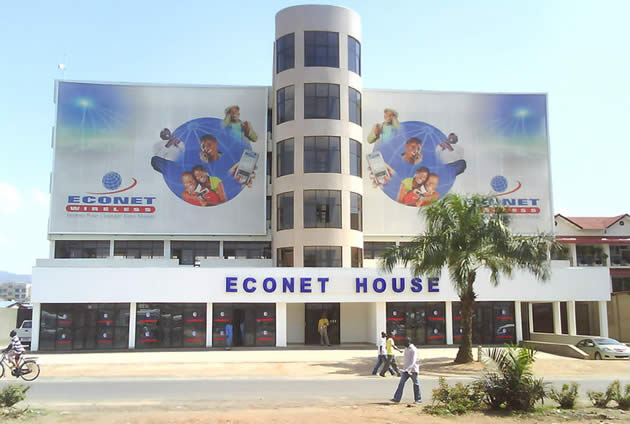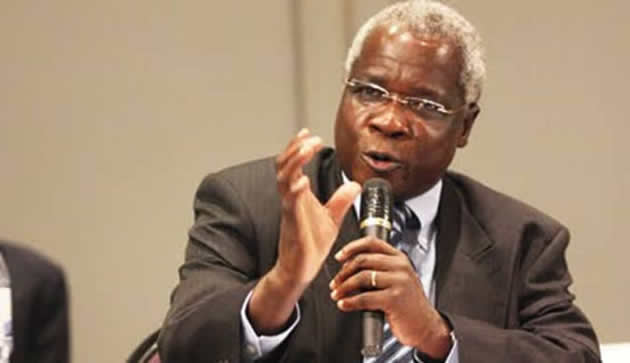Econet in anti-competition behaviour

Tonderai Rutsito Tech Talk
Econet Wireless Zimbabwe last week launched a “revolutionary” move in vehicle tracking services, as they moved further from being a service provider to a hardware supplier, something that triggered alarm in me, on issues of anti-trust or anti-competition violations.
While there is purely nothing sinister about the mobile network operator expanding its services where there is a plethora of Value Added Services, it is also imperative that the market needs to be well cognisant of possible violation of anti-competition here.
In fact, under normal circumstances we should be giving Econet Wireless Zimbabwe the thumbs up for finding new ways to stay afloat in these tough times where all mobile network operators are facing drastic revenue decline due to new emerging disruptive technologies in communication.
Unfortunately for a nation such as Zimbabwe, we are now forced to read between the lines and treat every new product on the market with a pinch of salt mainly because there is no better teacher than history.
A few years back, Zimbabweans were taken for a ride when mobile operators sold sim cards, which have a market cost of less than 50cent, at an exorbitant price of not less than $120 while the black market was no better, doubling the figure at times.
Few people complained in what one could call the largest anti-competition scandal in Zimbabwe, where basically all the operators agreed to make the sim card a scarce commodity, creating artificial demand forcing millions of Zimbabwean to spend the better time of the day queuing for sim cards, but only when Telecel slashed prices did the situation turn sober.
The Antitrust act was violated in Zimbabwe, where the players were bent only on achieving or maintaining monopoly, enjoying obscene income for their coffers.
Just to take you back, the longest antitrust case in technology was that of Microsoft against the world, where among other players including the open source community, sued Microsoft for various issues where the giant company’s dominance had to be over ruled.
Amongst the cases raised were issues of attempting to monopolise the market for internet browsers because such browsers would create competition for operating systems; that it bundled its browser (Internet Explorer) with Windows and engaged in a number of other anti-competitive or exclusionary practices with computer manufacturers.
Other anti-competition issues it was accused of related to windows media player and denying developers access to the API.
The antitrust law also stopped Microsoft from punishing equipment makers who sold rival products, and prevented it from withholding application programming interfaces to third-party developers. Does the same ring a bell closer to home?
When you create a giant, be careful to make it a monster, and we cannot relax as if all is normal, at least for now.
Econet is no stranger to mobile phone market monopoly or market bullying. They are a service provider already with the largest GPS coverage in Zimbabwe; what then is the motive for Econet to start buying and selling vehicle tracking devices, bearing in mind this obviously is a business case. My worries are obvious, the first step into anti competition.
This is exactly what happened few years ago when Ecocash was launched; we all applauded the innovative structures they put in place to make it convenient, with accessibility to the serve the whole nation.
All hell broke loose when Telecel tried to come into the same industry; we started to hear of things like “our agents and our merchants,” yet all these really are Zimbabweans seeking a living from any available business opportunity in a rather poorly performing economy.
This could just be setting a time bomb in the future, as Econet will have problems with other players when the field is solely tilted in their favour. The same happened recently when banks waged a war against Econet after it refused to open its Ecocash platform.
I love a competitive environment, but this is obviously a different case, where one cannot be a raw material producer, a processing company, a packaging company and the retailer that pushes the product, this is where stakeholders ought to signal the red light before something starts to really wrong, because something will surely be wrong soon.
Besides the cautionary on anti competitive behaviour, Econet could have played a much more innovative role in the game than just duplicating the technology other vehicle tracking companies have been using.
In all honesty, Econet is only coming as a disruptive competitor to the players who heavily rely on their good GPS coverage, whether this is greediness or business foresight remains a matter of debate, but nothing near revolutionary innovation as was publicised.
Ironically, just like any other Mobile Network operator, it has been difficult for upcoming players to get short codes from them. We have seen the same tendency as many players have complained that Econet has stringent conditions for anyone who needs to purchase these data tracking lines, a move which has dampened spirits of many entrepreneurs with more innovative ideas to run the same business.
If this is not a violation of fair competition then this act has no place for our Zimbabwean market. Speaking to regulator, Potraz, on the concerns, it said the anti competition department was adamant that there was no violation whatsoever, as Econet is only exercising the right to other Value Added Services.
Will Econet be willing to selling new their gadgets to entrepreneurs who want to run the devices on a different Mobile Network or such may face “Refusal to deal”.
Internationally, this would be a violation, which “ includes any agreement restricting, or is likely to restrict by any method the persons or classes of persons to whom goods are sold or from whom goods are bought.”
Strive Masiyiwa, the founder of Econet Wireless Zimbabwe, has built his empire on entrepreneurship values where opportunities to young and emerging players are valued.
Econet’s new aggressive method, akin to survival of the fittest, is doing exactly the opposite of the founding principle of the organization, where most entrepreneurs in Zimbabwe have become victims of the new order and instead of freely sharing their ideas, they fear that the big brothers will only steal the ideas and will be dumped in the dustbins without a fight.
Econet would have been commended for opening up their doors to other players while they provided the technology to increase revenue streams, millions would run systems on its backbone, as a service provider creating new revenue, in the real spirit of entrepreneurship.
The Writer is the editor for TechnoMag, Zimbabwe’s premier technology website. More in depth at http://technom.ag/9l or mail articles at technomag.co.zw, join our facebookwww.facebook.com/technomagzw or tweet@technomagzw








Comments